Author Sunil Mishra
1. Tell us something about yourself. Who is Sunil Mishra in real life? What is your educational background?
I have worked for 20+ years with technology and consulting companies. Currently, I am working for Infosys and previously worked for McKinsey, Accenture, and Oracle.
I work extensively with start-ups and educational institutes in the area of academic incubation. I am in the mentor panel at IIM-Lucknow (SCI-FI) start-up program. I am also a #MentorForChange selected by Atal Innovation Mission, Niti Aayog to promote innovation in schools.
My educational background – I am a B.Tech from IIT(ISM) Dhanbad and MBA from IIM Lucknow.
2. What are your hobbies or how do you like to spend your free time?
Mostly I read books on various topics. This helps in getting ideas for writing. I write blog posts on LinkedIn, Medium and Facebook.
I do a lot of online courses in my area of interest. Recently I created a Deep Learning video course in Udemy that has got 10K+ students enrolled so far.
I like playing chess. I used to be regular in running but that was before this lockdown.
3. After such a successful IT career, how did you begin writing? Did you intend to become an author or did you have a specific reason behind writing each of your books?
My first book was a travel account of 30 countries over 15 years. I have been fortunate to visit so many countries as part of my work. So, my first book was pretty much unplanned. The purpose was to document the travel experience which evolved as a book. My second book has also been indirectly driven by my experience at work and digital technologies.
The third book “Who Stole My Time?” is more generic about social media, not related to my work. Though this book is a fictional account, it can be directly related to real life.
4. How many books have you written? Tell us a little about all of them?
I have written 3 books: –
Transit Lounge (2017): This book consists of short incidents, observations and reflections while traveling to 30 countries across six different continents over 15 years. It was interesting to observe all these different cultures and people from an Indian perspective. The book is a compilation of small incidents and events during such travels; it includes losing an air ticket, dealing with difficult custom officials or getting mugged in a prime location in a foreign country.
Grab your copy here from Amazon
Who Stole My Job? (2019): This is a story of an organization that is undergoing technological disruption and the impact it creates on the lives of the employees. The story emphasizes the change and our ability to deal with it. It is essentially about learning to deal with new situations.
Grab your copy here from Amazon
Who Stole My Time? (2020): This book is essentially about how social media can enslave us if we are not conscious about it. Technology like cell phones can empower us but only if it is used judiciously.
Grab your copy here from Amazon
The blurb of my latest book, “Who Stole my Time?”
Satvik, Sandeep and Ashok are three college friends meeting in Goa after a 25-year gap. While reminiscing about their college days, they discuss the craze of social media these days. The chance upon the idea of creating ‘Paybook’ – a new social media app that pays the users for their engagements. The app becomes an instant hit. This, however, also unfolds a series of events that take the friends to the unchartered territories.
5. How did the idea of “Who Stole My Time” come to you and how is it different from other books?
Today we have started loving the technology so much that we have lost touch with ourselves. If you recall in the pre-internet era, we had plenty of time. We lived in the moment with people and the physical world around us. Today thanks to smartphones – even a 5-minute break is used up in catching with the virtual world. We don’t have time for ourselves. Our attention spans are reducing we are becoming distraction addicted.
I wanted to convey the above message through a story. That is how the thought of Paybook came and I have tried to capture this theme. The book has some lessons on mindfulness and how to reclaim our lives.
6. How is your hefty IT experience helping you in writing?
My first two books were entirely driven by my work experience. The first one was related to extensive travel while the second one was about life in a large organization. The current book ‘Who Stole My Time?’ is more generic.
7. Is Digital Detoxification the need of the hour or is it just another hoax?
It depends on how you use it. It may not be a problem for everyone. If you are in control of the digital world, it is not a problem. However, the social media are designed to be addictive and one may fall through the crack easily. Any addiction is bad, be it alcohol or Facebook.
A simple test for addiction – Try going for a long walk without carrying your mobile. If your anxiety level does not go up, you should be fine. For many of us, we can’t live without our phones. Some teens wake up at night just check messages and posts.
I am not in favor of shunning the social media entirely, because the entire world is out there, however, we must critically examine our usage.
8. Is it true that Social Media apps are deliberately made addictive? If yes, how can one escape this trap?
Some of the internet and social media addictions work like the boiling frog example. When you put a frog in water and slowly start heating the water, the frog does not sense the danger. It even enjoys the initial warmth. The frog does not make any attempt to jump out. After some time, the water becomes too hot. Now, the frog realizes the danger and tries to jump out. By that time, its muscles become too weak to jump out of the boiling pot. It eventually dies. Some of these technological addictions today work like that. The stress keeps increasing till the time it overpowers us. At this stage our brain’s reward circuit is altered in such a way that we don’t have control over our addictions. It works exactly like alcohol or drug addictions in people.
On escaping – the book has a section on mindfulness. It can be interesting for any de-addiction.
9. Is there even a remote possibility of AI having emotions too in the future? If yes, is it ethical to do so?
This topic I have covered in my second book “Who Stole My Job?”. My answer could be as speculative as anyone else’s. My personal view is that emotion and consciousness are not important for a super-intelligent AI. Some scientists call them botch-up of human evolution. Just like we created airplanes that do not resemble birds, we will have AI supercomputers that will not be like humans but several times better.
Ethical use of AI is a very intensely debated topic with people like Elon Musk and Bill Gates working towards it. OpenAI is one such organization. In an AI-driven world, we all will have to redefine what it means to be human.
10. Who is your favorite author of all time? Name some of your favorite works from him/her.
Herman Hesse – for his work Siddhartha. I have read this book several times. There is a Bollywood movie created based on the novel with the same name.
I also like the work of Yuval Noah Harari, Nassim Nicholas Taleb, Malcom Gladwell. The names keep changing based on what I am reading.
11. Picture this: You feel uninspired and you’ve been sitting at the computer for an hour without conquering any words. How do you get your creativity flowing?
It has happened many times with me, as with any other author. Some people call it ‘writer’s block’. I think the solution is to persist and stay with the thought. Something or the other usually emerges.
12. Where do you get your ideas from? Is it extensive reading, your hefty IT experience or something else?
I would say primarily reading and then observing. I read for writing and write for reading. I prefer to do a lot of research for the book. For example, for the current book, I read several books on social media, psychology and brain science (as one of the protagonists was a neurosurgeon). I did several online courses on these topics as well.
13. How many unpublished and half-finished books do you have? Also, tell us something about what’s next in the line?
At least 2 – one is nearly complete and another one is one fourth written. Next in line, I may not know because publishing depends on so many other factors as well. I may well think of Who Stole My – series, something after Job and Time.
14. Do you Google yourself? If yes, how often?
I must admit, yes. I recently got added as a verified Google knowledge panel. It was a wonderful feeling. How often – is based on the event. If it is soon after a new book launch it is more frequent.
15. How can we use the benefits of technology without being overwhelmed by the adverse effects?
It is all about being aware and willing to moderate our behavior. In the book “Who Stole My Time“, one of the characters Ramesh runs a social media rehab center. Among many things he does is to conduct a session on mindfulness. The idea is to use the technologies for our benefit at the same time not allow them to take control of their own lives.
16. What according to you is Life all about?
An ancient Greek dictum uttered by Socrates goes, ‘An unexamined life is not worth living’. I think life is a lot about self-reflection, taking a pause from the mad rush and discover things for ourselves. Reading and writing are forms of such reflections. Life by itself could be meaningless, it is we who provide meaning to it.
17. What’s your idea of Happiness? Do you believe that information-overload is somewhat making us depressed?
I think happiness is being in a state of ‘Flow’. We all have experienced this. When an artist is engrossed in a painting or programmer is working on the code – this is a state of flow. Here the mind is so much engrossed in the work that we lose the sense of time and space. Our attention is fully dedicated to the work at hand. We have no more attention left to attend to anything else around us. The time flies like anything. In this state, we also sometimes forget to eat or drink, but we don’t mind.
In the book, ‘Ikigai: A Japanese Secret to a long and happy life’ the authors define happiness as the act of being busy. The long-surviving citizens of the island of Okinawa village were continuously in a state of ‘flow’ working in their vegetable fields, cooking, dancing and singing.
Information overload breaks our state of flow. Our attention gets diverted. We lose our ability to do focused work. The information overload makes us anxious and depressed.
18. What’s your advice for aspiring authors?
I hear many people say that they want to write a book. However, they keep waiting for some grand idea to strike. The secret of writing, according to me is to just start writing. Even if the first draft is crappy, it does not matter. The story evolves of its own. The key is to keep the focus and write regularly.
Some people say they don’t get time to write. My response to that is usually is that time is only an excuse. We always manage to find time for things that we prioritize.
19. How can readers connect with you? Share your social media links and email
Website – https://sunilkmishra.com
LinkedIn- in/sunilkrmishra/
Facebook – https://www.facebook.com/AuthorSunil/
Instagram – https://www.instagram.com/authorsunilmishra/?hl=en
20. A message for the readers of HappinessDhaba
I see you have a lot of good content on books. This is wonderful. One of the best things according to me is to inculcate the habit of reading books. That is where the learnings come from. When you read any book, you get knowledge in the right context. This adds to your wisdom. If you compare that to social media browsing, TV watching or even newspaper reading – they are all fragmented data points without much context. If you start loving books you can live without all the distractions in our digital world and that will not be a bad idea.
Read More Here: Book Review | Who Stole My Job by Sunil Mishra
This was our 2nd Interview in the series “Hearty Conversation with Artists.” And we really enjoyed it.
We wish Author Sunil Mishra a Happy & Healthy life ahead.
That’s all we have for today. Thanks a lot for tuning in to HappinessDhaba. Hope, you got to know a lot about Sunil Mishra and learnt something valuable from his experiences.
Do let me know your views in the comment section. Till then, Goodbye.
Signing off with my favorite words.
Zindagi Zindabad!
Author Profile
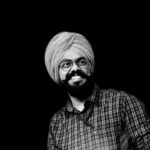
Recent Posts
 The Punjabi LiteratureJuly 14, 2025Paash on the Death of Dreams ― Sab Ton Khatarnak
The Punjabi LiteratureJuly 14, 2025Paash on the Death of Dreams ― Sab Ton Khatarnak Blog PostsApril 6, 2025Rebuilding Identity After The Self Falls Apart | by Jasmeet
Blog PostsApril 6, 2025Rebuilding Identity After The Self Falls Apart | by Jasmeet Book Summaries & LessonsFebruary 6, 2025BURN IT ALL: Kafka’s Legacy and the Friendship That Saved It
Book Summaries & LessonsFebruary 6, 2025BURN IT ALL: Kafka’s Legacy and the Friendship That Saved It Life Through SongsJanuary 20, 20259 Best Punjabi Heer Ranjha Songs ― The Modern Playlist
Life Through SongsJanuary 20, 20259 Best Punjabi Heer Ranjha Songs ― The Modern Playlist
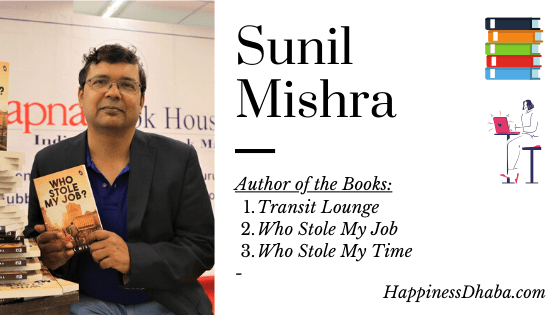



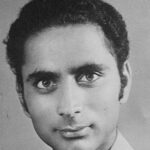



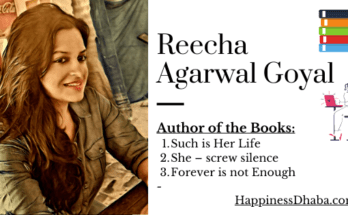
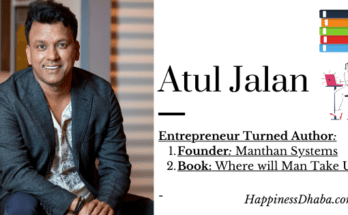
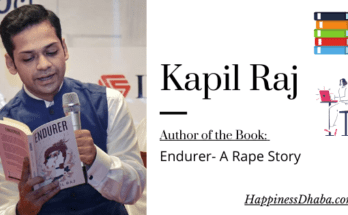
I had read Who Stole My Job after your recommendation. It was a good one.
Looking forward to reading Who stole my time:)